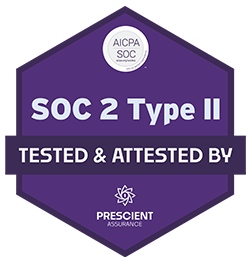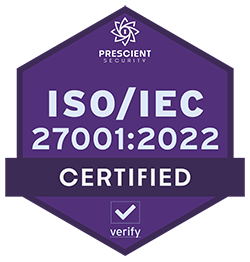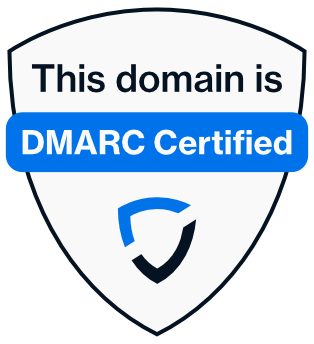Blog article
- 4 minutes read

- Melissa Collins
- Senior Digital Copywriter
10.5 trillion reasons why anti-spam is not enough
As the world becomes increasingly connected, so too do cybercriminals and their access to malicious tools. With an array of preventative systems available, the onus falls on organizations to protect themselves against unthinkable threats.

In January this year, the 2023 World Economic Forum’s (WEF) Global Risks Report, put cybersecurity in the current and future top 10 risks globally.
According to Cybersecurity Ventures, the cost of cybercrime is projected to hit $10.5 trillion by 2025. At the same time, Gartner analysts predict that over the next two years, 45% of global organizations will be impacted in some way by a supply chain attack.
The costs of a cybercrime attack are frighteningly far-reaching. Beyond stolen money, theft of intellectual property, and/or damaging your brand’s reputation, any kind of attack can disrupt the normal flow of your business — stealing time and productivity and incurring costs that can extend further than the actual crime.
But did you know that 91% of cybercrime starts with a phishing email, or that 95% of breaches are a result of human error? This means protecting your organization from the risks and costs of cybercrime is possible, and largely up to the systems you use to protect your information, defend your brand, and keep your communications, data, IP, and money the way they are trusted to be: private and secure.
It’s no wonder then that, along with the report, WEF recommendations stress the need to embed security and privacy by design: meaning that the responsibility falls on organizations to adopt a defensive, not reactive, strategy to cybersecurity and argues that vigilance must become the new normal for businesses.
Why anti-spam is not enough
While anti-spam measures are an important component of cybersecurity, they are not sufficient on their own. Here are a few reasons why:
- One-way-only solution: While your staff might be protected by your existing anti-spam provider or perimeter protection, your customers, suppliers and the rest of the world are not.
- Evolving threat landscape: While anti-spam measures can help filter out known spam emails, what they can’t do is offer protection for external parties. These external parties may include customers, partners, or suppliers who may fall victim to phishing attacks and other email-based threats.
- Social engineering attacks: Many cyber-attacks leverage social engineering techniques to deceive users into taking harmful actions, such as clicking on malicious links or providing sensitive information. Anti-spam measures may filter out some phishing emails, but they cannot fully protect against the psychological manipulation and deception used in targeted attacks.
- Visibility and reporting: Certain protocols provide reporting mechanisms that offer valuable insights into email delivery and authentication, enabling organizations to monitor and analyze email traffic. This helps identify unauthorized use of a domain, detect phishing or spoofing attempts, and take appropriate actions to protect stakeholders. Relying solely on anti-spam solutions may lack the necessary visibility to effectively combat these threats.
How DMARC provides the solution
Domain-based Message Authentication, Reporting, and Conformance (DMARC) is an email authentication protocol that helps combat email fraud, phishing and spoofing attacks. It quickly and seamlessly enables complete email ecosystem security across organizations of all sizes. For a better understanding, we have created the following infographic:
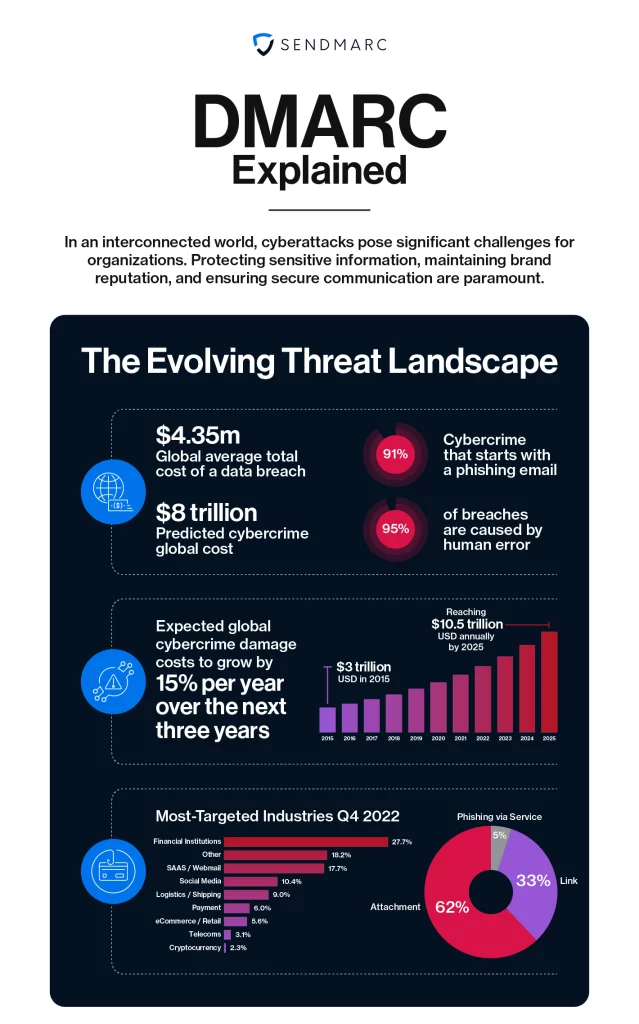
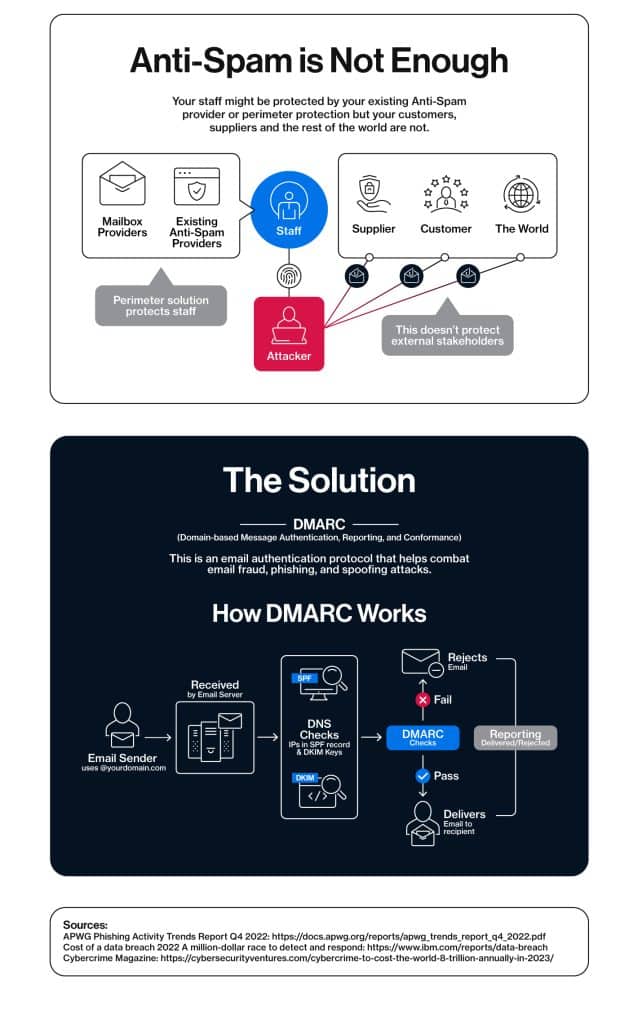
The benefits of using Sendmarc to implement DMARC include:
- A 90-day protection guarantee or your money back.
- Complete visibility into your email environment.
- Detailed reports on DMARC, email sources, and failures to enhance your email security.
- Easy management of multiple domains and records.
- Expert tech resources that are always available to assist you as and when needed.
- Simple proof of concept (POC) sign-up.
- Full control over your DMARC environment.
- A cost-effective solution within the market.
Now and in the future, and whichever industry you are operating in – from financial institutions to logistics and shopping, to payment, retail and telecoms – it is important to be conscious of investing in an email defense ecosystem that combats the growing threat of cybercrime. DMARC is a robust gatekeeper that will ensure your organization has the right defenses and systems in place to guard against cyberattacks, together with anti-spam measures.
As the above data suggests, everyone is at risk of being caught out by email fraudsters. How secure is your brand domain from email scammers? Do you know your score? Contact us to learn more about how we can help you achieve the highest and safest states of email security.



